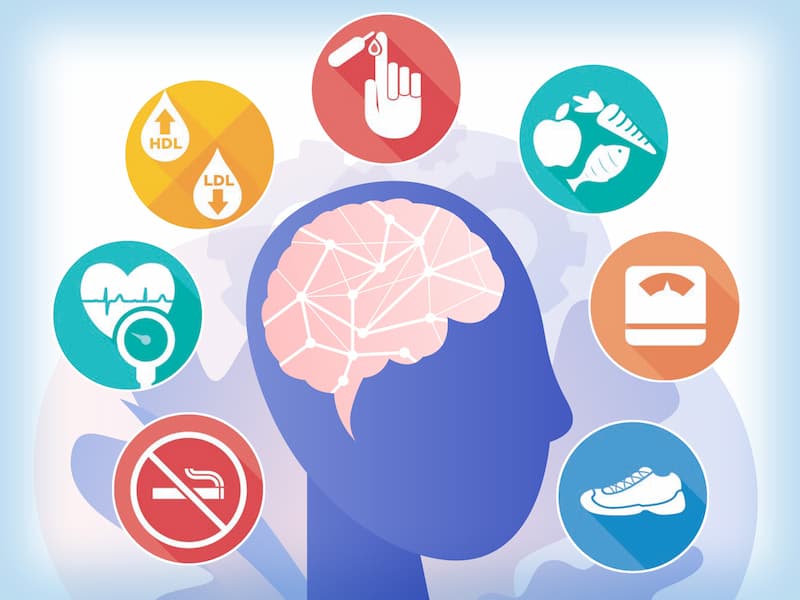Why is Walking Important for the Elderly: Vital Benefits Unveiled
Walking is important for the elderly as it helps improve balance, strength, and cardiovascular health, reducing the risk of falls and maintaining mobility. It also supports mental health, social interaction, and overall well-being.
For many seniors, walking is a low-impact and accessible form of exercise that can be easily incorporated into their daily routine. It helps to strengthen bones, prevent muscle atrophy, and manage chronic conditions such as arthritis and diabetes. Additionally, regular walking can contribute to maintaining a healthy weight and reducing the risk of obesity-related diseases.
Overall, walking plays a crucial role in promoting the physical, mental, and emotional health of the elderly, enabling them to lead active and independent lives as they age.

Credit: www.linkedin.com
Improved Physical Health
Walking is essential for the elderly as it promotes improved physical health. Regular walking helps strengthen muscles, increases flexibility, and enhances cardiovascular health, reducing the risk of various diseases and improving overall well-being.
Increased Cardiovascular Fitness
Walking is an excellent exercise for the elderly to improve their cardiovascular fitness. Engaging in regular walking sessions helps strengthen the heart, improve blood circulation, and increase lung capacity. By getting the heart pumping, the risk of cardiovascular diseases such as heart attacks, strokes, and high blood pressure can be reduced. Walking also aids in weight management, which further promotes a healthier heart. Just 30 minutes of brisk walking a day can make a significant difference in one’s cardiovascular health.Enhanced Muscle Strength
In addition to cardiovascular benefits, walking plays a crucial role in enhancing muscle strength for the elderly. Walking engages various muscles throughout the body, including those in the legs, glutes, core, and even the arms if proper arm swing is incorporated. By regularly walking, these muscles are stimulated and strengthened, helping improve balance, stability, and mobility. Stronger muscles also provide better support for joints, reducing the risk of falls, fractures, and other injuries. Walking not only benefits the lower body but also engages the upper body muscles, promoting overall muscle toning and strength. Additionally, walking is a weight-bearing exercise, which is especially important for the elderly to combat muscle loss and maintain bone health. It helps retain bone density, reducing the risk of osteoporosis and osteoarthritis. Engaging in a consistent walking routine can gradually improve muscle strength, making everyday activities easier and more enjoyable for the elderly. Incorporating regular walking sessions increased cardiovascular fitnessenhanced muscle strength. Walking promotes a healthier heart by strengthening it, improving blood circulation, and increasing lung capacity. It also aids in weight management and reduces the risk of cardiovascular diseases. Furthermore, walking engages various muscle groups, resulting in stronger muscles and better balance, stability, and mobility. By regularly walking, the elderly can maintain and improve overall physical health, making everyday activities easier and preventing potential injuries. So, let’s take that first step and enjoy the numerous benefits walking has to offer for the elderly.
Credit: www.parxhhc.com
Mental Well-being
Walking plays a crucial role in promoting the mental well-being of elderly individuals. It offers numerous benefits that contribute to their overall mental health and emotional stability. The following are some of the ways in which walking positively impacts the mental well-being of the elderly.
Reduced Risk Of Depression
Regular walking significantly reduces the risk of depression among the elderly. It helps in alleviating feelings of sadness and anxiety, and contributes to a more positive outlook on life. With regular physical activity, individuals may experience a boost in their mood, ultimately leading to a decreased risk of developing depression.
Improved Cognitive Function
Engaging in regular walking has been linked to improved cognitive function in the elderly. It enhances brain function, including memory, attention, and processing speed. The benefits of walking are not only physical but also extend to cognitive well-being, which is essential for maintaining mental clarity and sharpness in old age.
Social Connection
Social Connection: Walking is not just about physical health for the elderly; it also plays a crucial role in fostering social connections. Maintaining social interactions is vital for the mental well-being of seniors.
Opportunity For Social Interaction
Walking provides opportunities for the elderly to engage in meaningful conversations with others and combat feelings of loneliness. Regular walks in the park can lead to impromptu social encounters with fellow walkers.
Sense Of Community
Walking in the neighborhood creates a sense of community among the elderly. It allows them to build relationships with neighbors and feel a part of something greater.

Credit: tcf.org
Fall Prevention
Falls can be a significant risk for the elderly, often resulting in serious injuries and hospitalizations. One effective way to prevent these falls is by encouraging regular walking. Not only does walking improve balance and stability, but it also reduces the risk of accidental falls in older adults.
Improved Balance And Stability
Regular walking plays a crucial role in improving balance and stability among the elderly. As we age, our muscles naturally weaken and our sense of balance diminishes. However, by engaging in walking activities, older adults can strengthen their leg muscles and improve their overall stability.
Bolstering leg muscles through walking helps seniors maintain a steady and upright posture, which is essential for preventing falls. It aids in enhancing proprioception, the body’s ability to sense its position in space. This heightened awareness allows seniors to adjust their movements and react quickly to uneven surfaces or unexpected obstacles, reducing the likelihood of losing balance.
Reduced Risk Of Accidental Falls
The risk of accidental falls can be significantly reduced through regular, brisk walking. In fact, studies have shown that seniors who engage in frequent walking are less likely to experience falls compared to those who lead sedentary lifestyles.
Walking helps seniors maintain a healthy weight, which reduces the strain on their joints and improves overall stability. Simultaneously, it enhances cardiovascular health and strengthens the bones, making them less prone to fractures. These physical benefits contribute to a decreased risk of falls and subsequently reduce the chances of sustaining serious injuries.
Furthermore, walking fosters better spatial awareness and coordination, allowing seniors to navigate their surroundings with confidence. By actively engaging the brain and body in the walking process, seniors become more attuned to potential hazards, such as uneven surfaces or loose rugs, and can react accordingly, preventing accidental falls.
Encouraging regular walking in the elderly is an effective fall prevention strategy. By improving balance and stability, as well as reducing the risk of accidental falls, walking promotes a safe and independent lifestyle for older adults. So why wait? Put on those walking shoes and start reaping the numerous benefits of this simple yet powerful exercise!Frequently Asked Questions On Why Is Walking Important For The Elderly
How Long Should An Elderly Person Walk A Day?
An elderly person should aim for at least 30 minutes of walking a day. It’s beneficial for physical and mental health. Gradually increasing to 150 minutes per week is ideal for maintaining fitness and mobility. Regular walks can also reduce the risk of chronic diseases and improve overall well-being.
What Time Of Day Is Best For Seniors To Walk?
Seniors benefit most from walking in the early morning or late afternoon to avoid extreme temperatures and crowds.
Does Walking Help Aging?
Yes, walking helps with aging by improving cardiovascular health, strengthening muscles, and maintaining joint flexibility. It also boosts mental well-being.
Is Walking 3 Miles A Day Good For Seniors?
Yes, walking 3 miles a day is beneficial for seniors as it helps improve cardiovascular health, strengthens muscles, and enhances overall well-being. It also aids in maintaining a healthy weight and reducing the risk of chronic diseases.
Conclusion
Incorporating regular walks into the daily routine of the elderly is crucial for their overall well-being. By engaging in this simple activity, seniors can improve their physical health, mental acuity, and emotional wellness. Embracing the benefits of walking can enhance their independence, reduce the risk of chronic diseases, and promote a better quality of life.
Taking regular walks is a small but significant investment in the health and happiness of the elderly.






